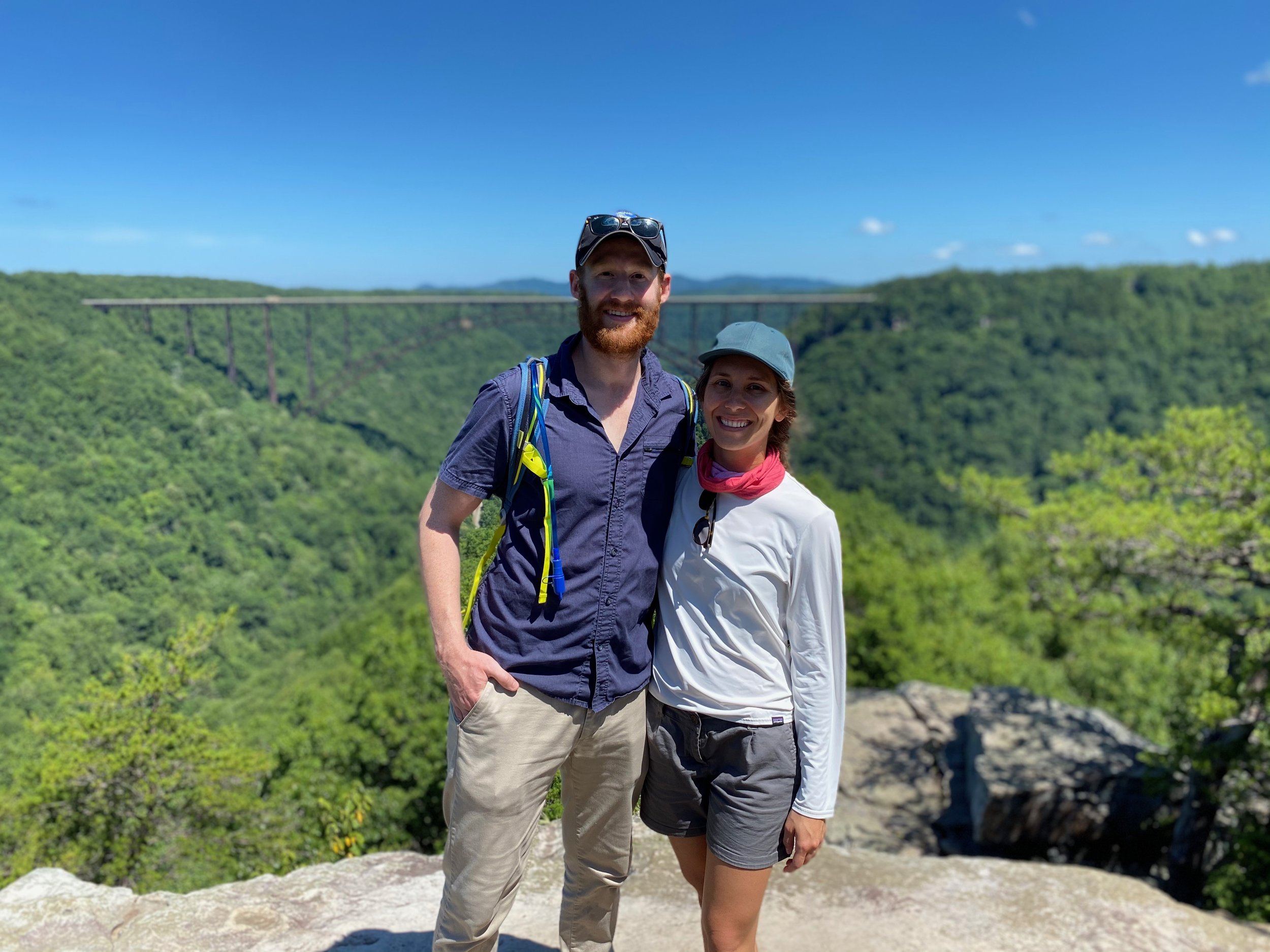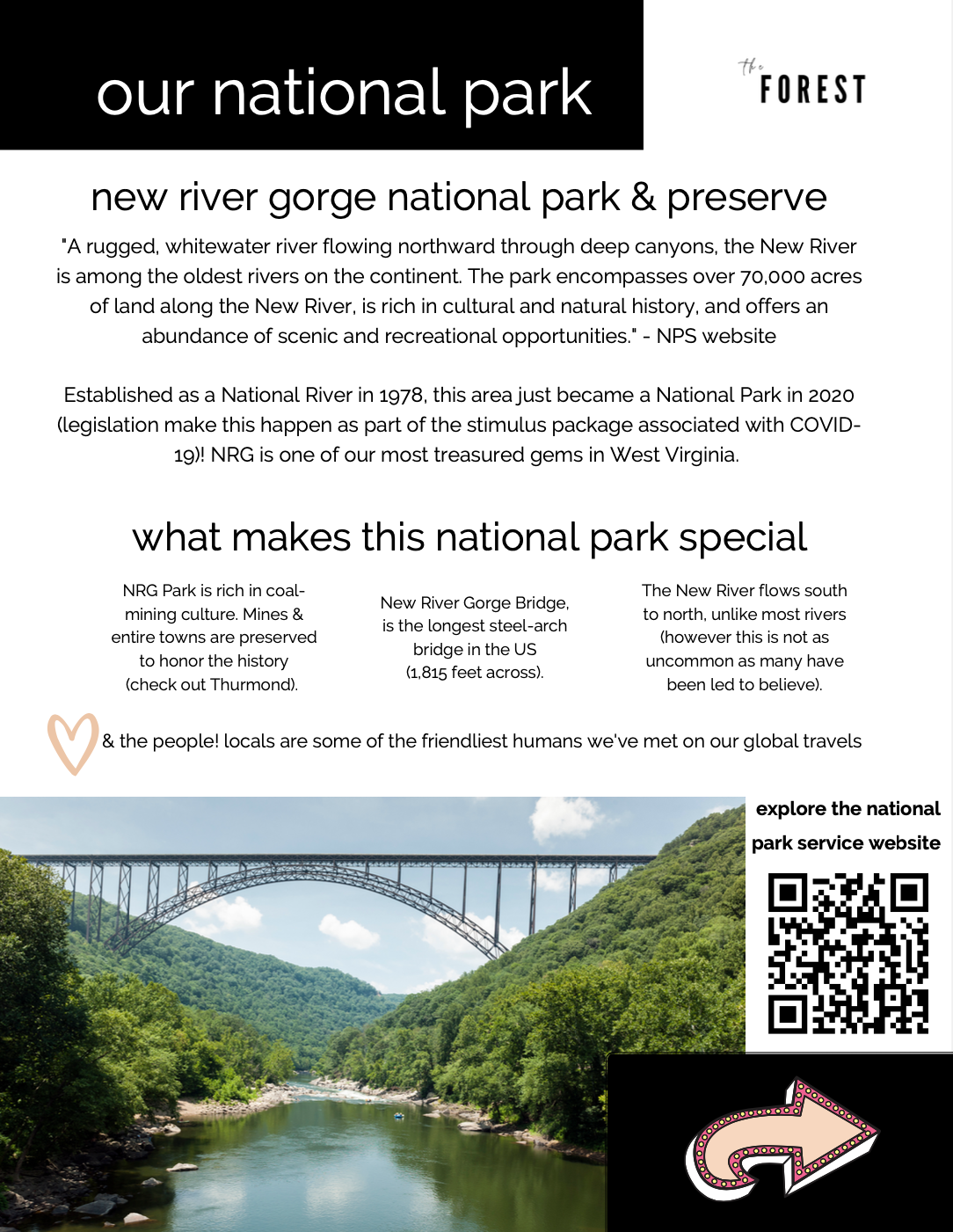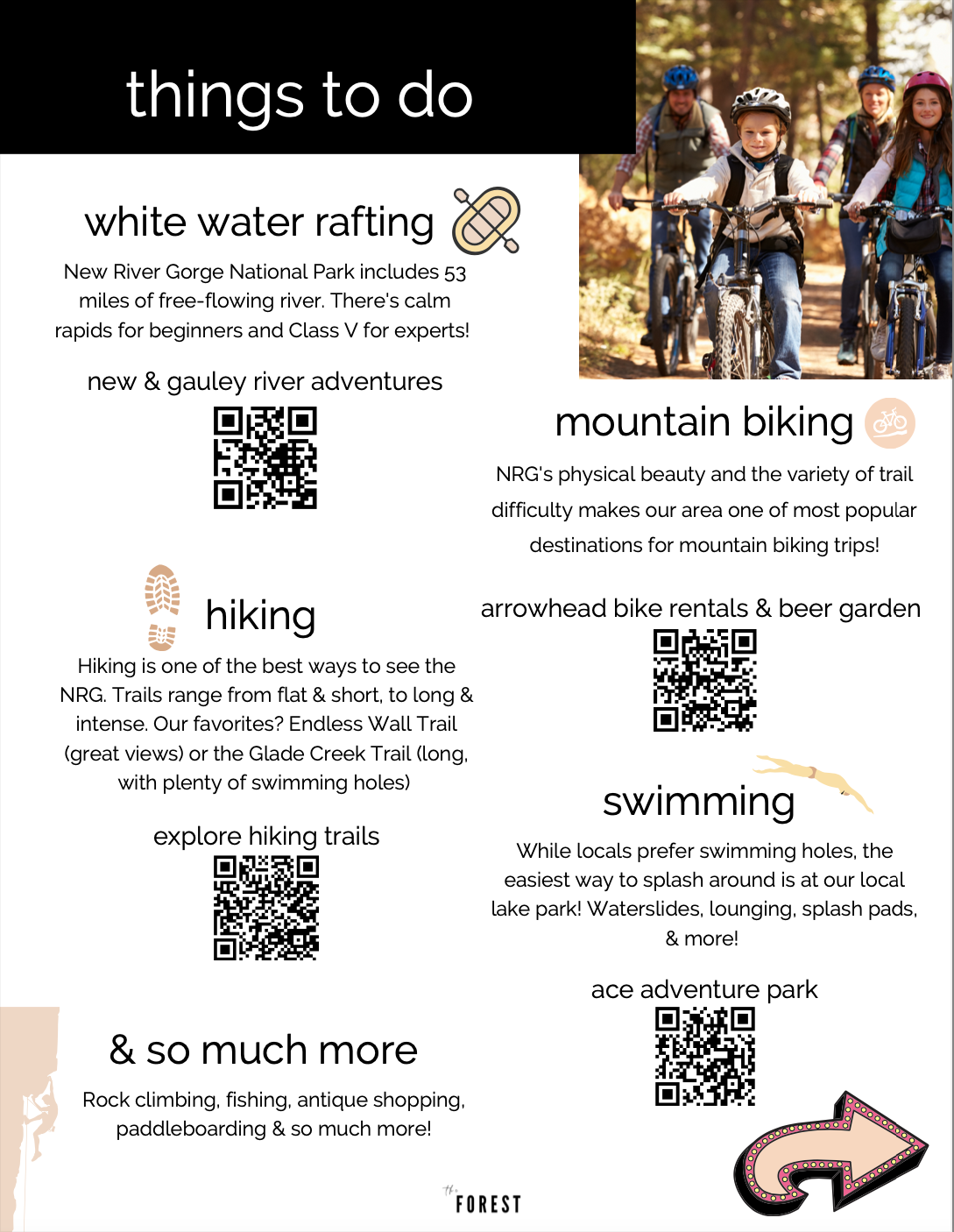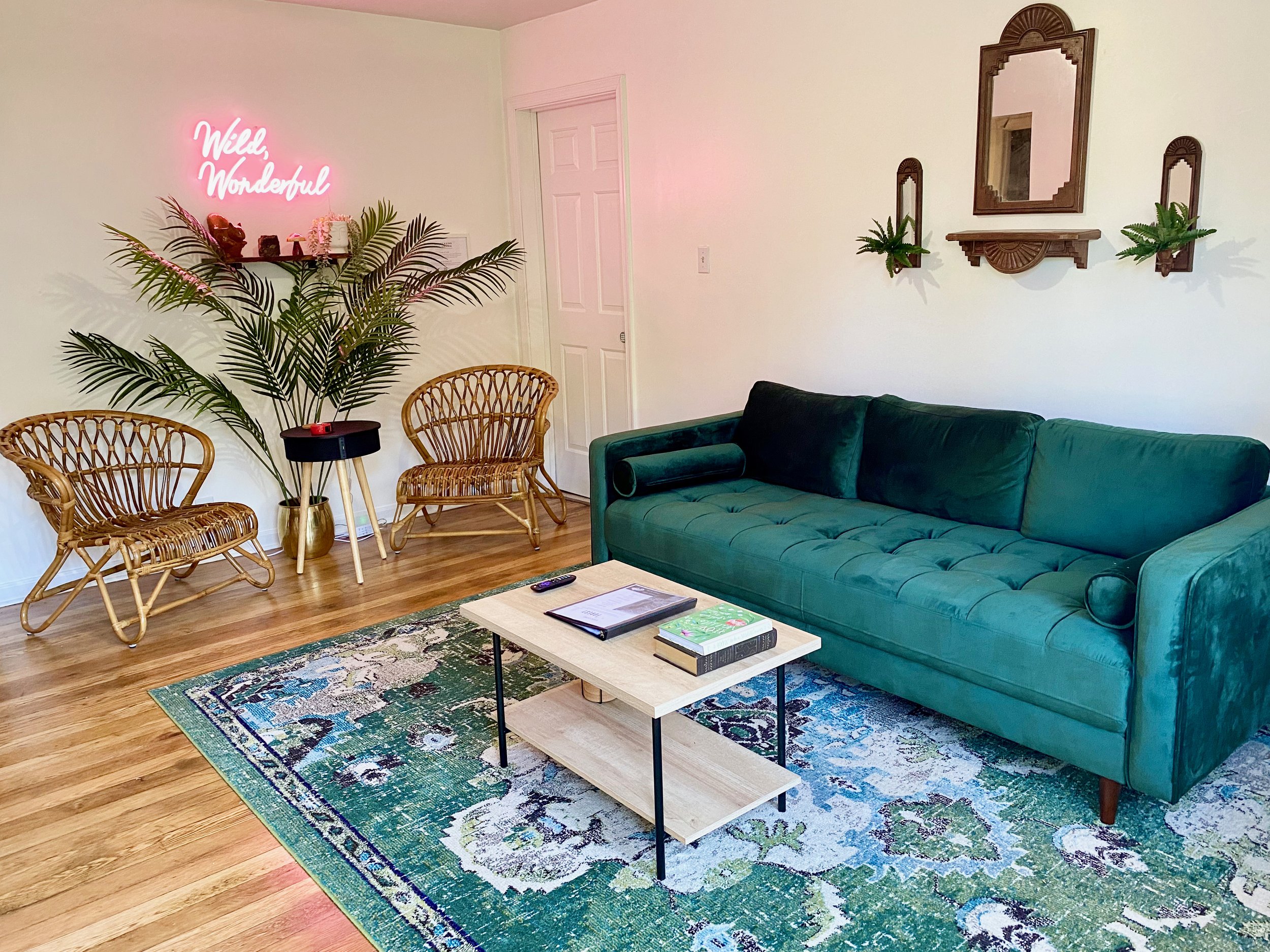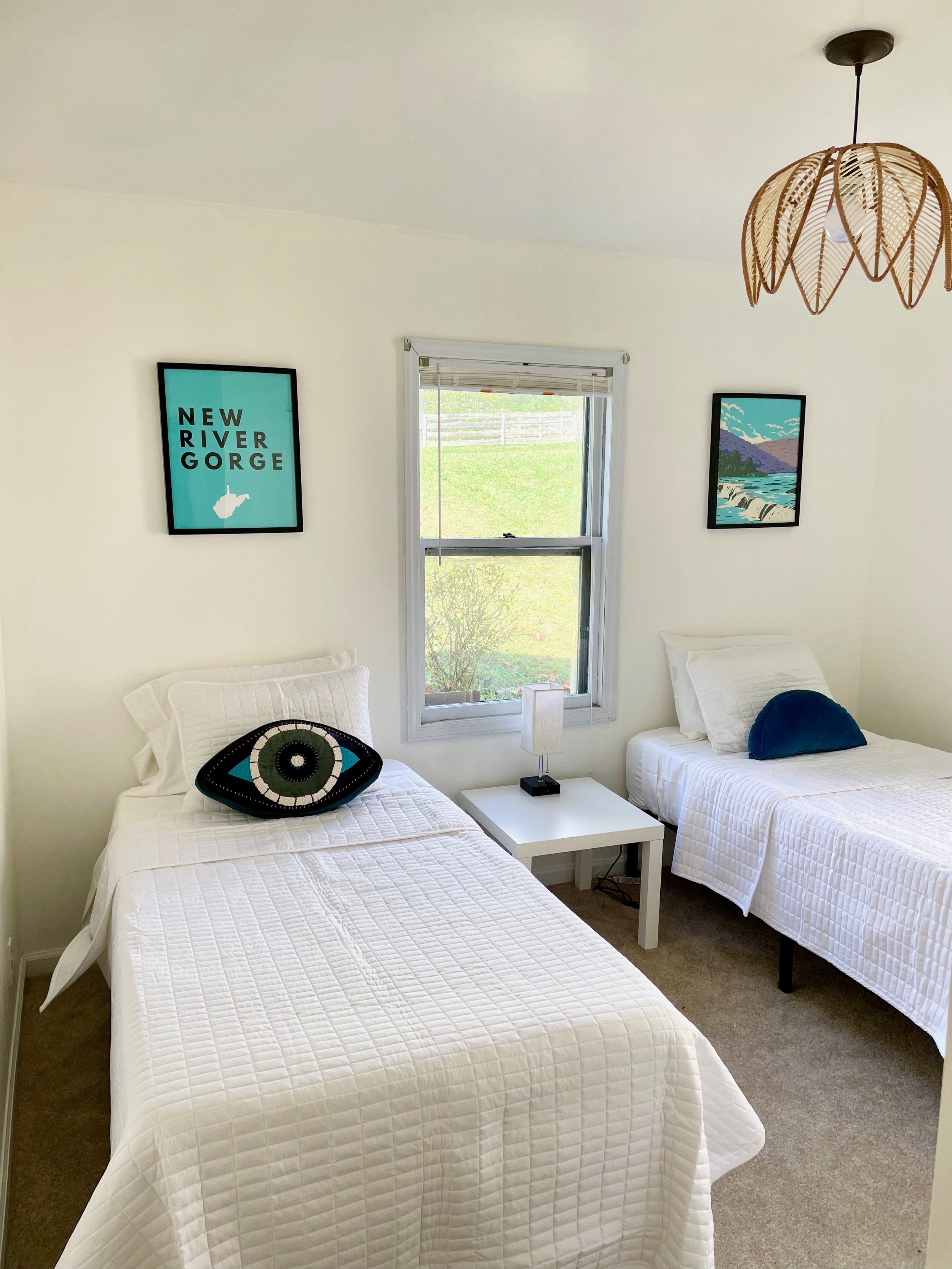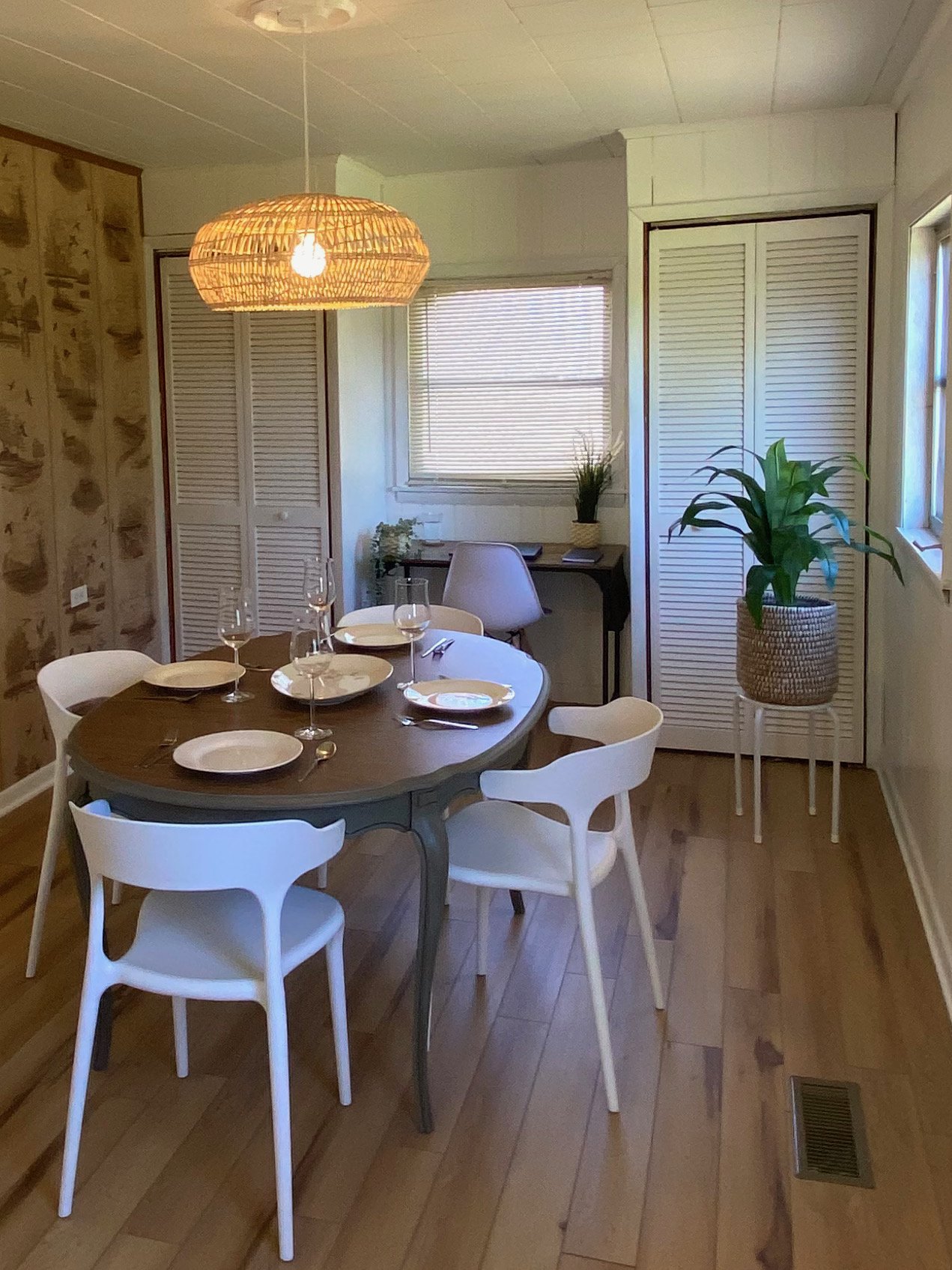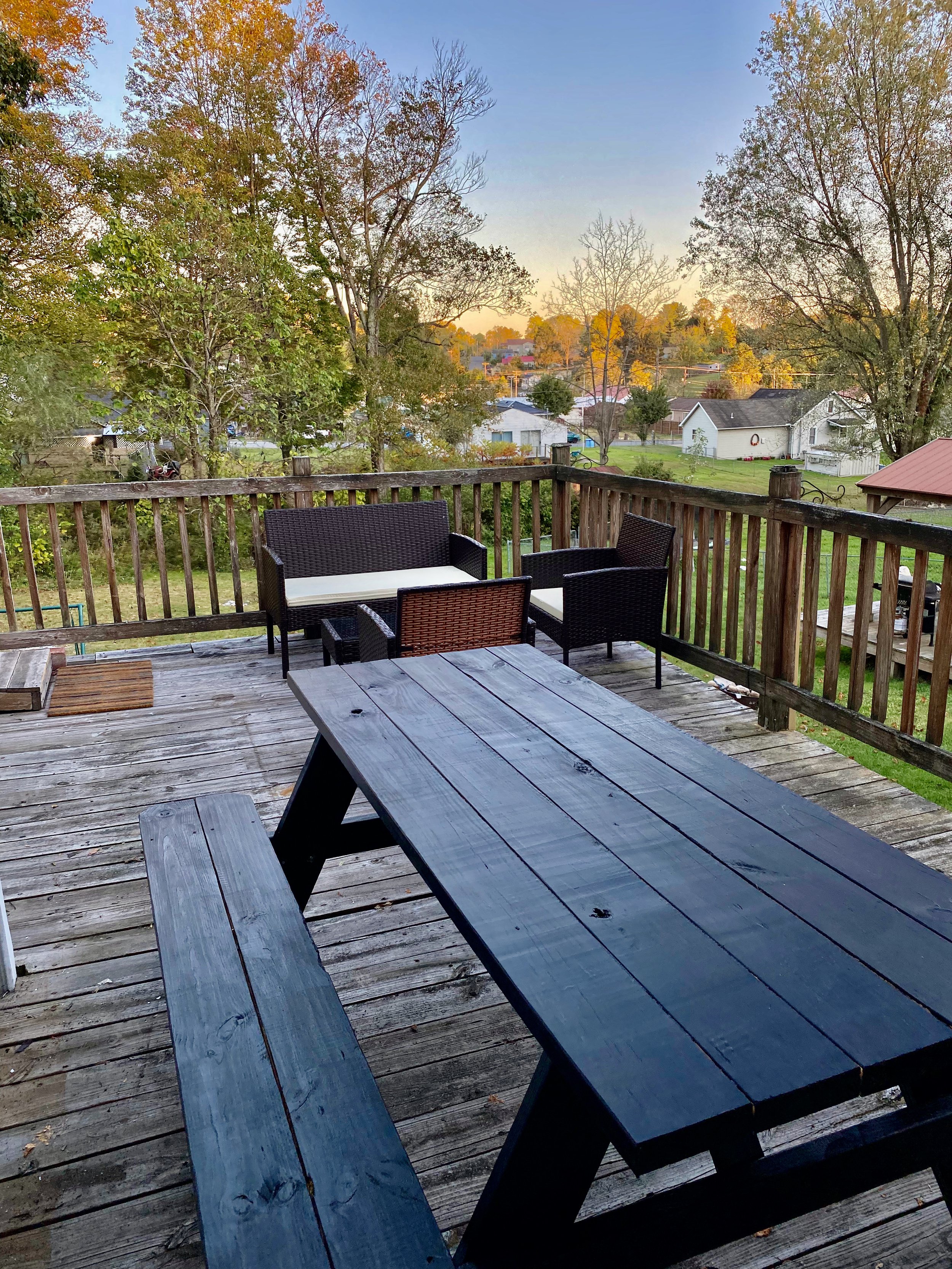We bought an Airbnb because of a business plan…
Yes, we are those crazy Millennials who go on vacation, look at homes on Zillow, talk a big talk about owning a vacation rental. Mountain home in North Carolina? Coastal home in Maine? Sure, sounds fun! But wait… Surprise! We actually did it!
How did we go from day dreaming to making a profit? Three words:
A business plan!
How a Business Plan Helped us Start an LLC and Buy the Right Property
If you follow our content regularly, you probably know we specialize in business plans. How does this valuable plan translate to big decision making?
We’re outlining the core components of a standard business plan and how we used our plan to make the decision to buy our Airbnb.
Section 1: Vision / Mission
The foundation of any business venture or idea. Your Vision / Mission answers the purpose of your venture and should answer how you will fulfill your vision.
Our Vision was clear - we wanted a second home that was rentable to tourists in a location entirely different from our home in Florida. This place would ideally have mountains and provide us with an outdoorsy lifestyle. Additionally, we knew we wanted our home to become an experience for travelers, that provided visitors an opportunity to engage with the local area and culture in a way visitors don’t typically see when staying at a hotel or vacation rental.
Our Mission was to buy property in areas we loved, starting with a single-family house in a location that allowed short-term rentals (it couldn’t be a townhome or condo because of rental restrictions).
We searched high and low for areas that fit our criteria. When we found the New River National Park in West Virginia, our vision / mission were aligned, so we built the rest of the business plan around this location.
Brent and Maggie on a hike in New River Gorge National Park in West Virginia. The area fit their life and business vision and mission, so they built a business plan and set out on a journey to create an Airbnb business.
Section 2: Competitive Analysis
Provides market intelligence and insights into potential for success based on others who are already in business.
We weren’t the first people to have the idea to Airbnb in the New River Gorge area, which meant there was existing competition that allowed us to determine the economic viability. Through research and data-digging, we were able to determine who our competition was and what our average nightly prices / occupancy might look like.
Each industry has unique competitive benchmarks and luckily, the short-term rental market has plenty of available data! Website like Airdna and www.alltherooms.com provide ample market data on nightly rates, occupancy, seasonality and more. Additionally, we did a quick search on Airbnb and looked through some of the top listings to see if there were places that we would be interested in staying in ourselves.
Equally as important, we looked at tourist data and hotel accommodations in the area to understand supply and demand. Did you know over 1.5 million people visit the New River Gorge National Park and it’s expected to grow over 20% next year (for reference around 2.4 million people visit Mt. Rushmore each year)?
The numbers checked out in West Virginia with occupancy in the summer months +90% from Apr-Sept and +30% in the off-season. This information was critical for future use in the financial section to validate whether the deal would work economically.
Section 3: Marketing / Target Audience
Understand who you want to serve and attract to business
Every decision you make around your business - the design, the messaging, the name, the branding - will impact your potential and future customers. We could do an entire blog on the marketing actions for your business plan but one area is extremely important to focus on:
Your target audience!
For us, we wanted to appeal to Millennials who are interested in nature, National Parks, and outdoor adventures. These travelers came from medium to big cities, enjoyed well-decorated homes and rooms, wanted to share their stories with friends (e.g. Instagrammable moments), and were looking for accommodations that matched what they were used to at home (except with an outdoorsy, modern West Virginia flare).
We then outlined how we were going to market to our ideal customers, how often, and what their experience would be like. These decisions drove everything from paint choice, to our Welcome Book, to artwork, to copy we use on our website.
The photos below are examples of our Welcome Book. The marketing plan, plus our target audience, helped us visualize the content we would create for our guests.
Section 4: Financials
Anticipate the revenue and costs, to determine if your investment is wise.
A business plan needs to tie together all elements. In the financial section, you’ll use the market intelligence you collected earlier, in addition to any important revenues or expenses (e.g. in this case, the cost of the house and necessary repairs).
Before you invest in your business, you need to determine if the ROI (return on investment) is worth it. Basically… are you happy with the expected return (e.g. profits) the business will make based off your initial investment (in this case, the cost of the house / renovations)?
Financials will quickly let you know what assumptions are needed to generate a profit and whether you believe that is feasible or not.
In West Virginia, we couldn’t accurately complete financials until we had the exact property in mind. We originally started with a placeholder, the amount we were comfortable with, until we knew the exact home price plus renovation costs.
Once we found the property and detailed all of the expected renovations, we determined how many nights we would need to have it occupied and at what rates to make it work. Additionally, we got multiple quotes from various contractors to get an approximation for all the projects we needed to do to make the house ready for guests and called the city to determine short-term rental laws. Afterwards, we determined we needed it filled ~120 days per year at average rental rates to generate the required return on investment (or profit) for us. Return on investment is simply how much money you expect from a project to go forward with it. A negative or low return on investment should make you pause and ask if you should continue or do you need to invest in something different.
New River Gorge National Park was the perfect destination for our second business, New River Group LLC.
Section 5: Implementation Plan
Your road map to success.
An implementation plan helps prioritize all the projects that need to happen. The easiest starting point:
Write down everything that needs to happen to get your business off the ground
Then group the items into a high bucket, medium bucket, and low bucket. Make this decision based off by asking yourself what must happen first, to get to the next step
Start with the high bucket items
For our property, we had about 30 individual projects that needed to happen (from creating a new LLC, to doing renovation work, to creating an Airbnb property, to hiring a property manager, etc.). Every single project was weighed against each other and prioritized. For example, we needed to create an LLC before applying for a conditional-use business permit in our town. Another example: We had to hire a contractor first before starting a project!
What about the timeline? That’s an executive decision you need to make! We closed on the property on September 2nd, and are proud that we had our first booking on the weekend of October 30th.
We mapped out the all the activities we need to accomplish before launch with key dates to deliver.
Was the business plan worth it?
Because of our business plan, we felt confident we could invest in a home and turn that home into a profitable venture. The business plan created a roadmap and analysis that money spent in West Virginia could result in passive, monthly income. With the right plan, investing in this new adventure meant we could have confidence in our abilities.
So how’d it all turn out? Our budget we set at the beginning came within 5% of our final expense and we opened up bookings ahead of our schedule.
In two months, we had completely renovated and furnished our home. Our theme: West Virginia’s state slogan “Wild & Wonderful.”
If you need help with your own business or are thinking about buying an Airbnb for yourself, we are here to help!

